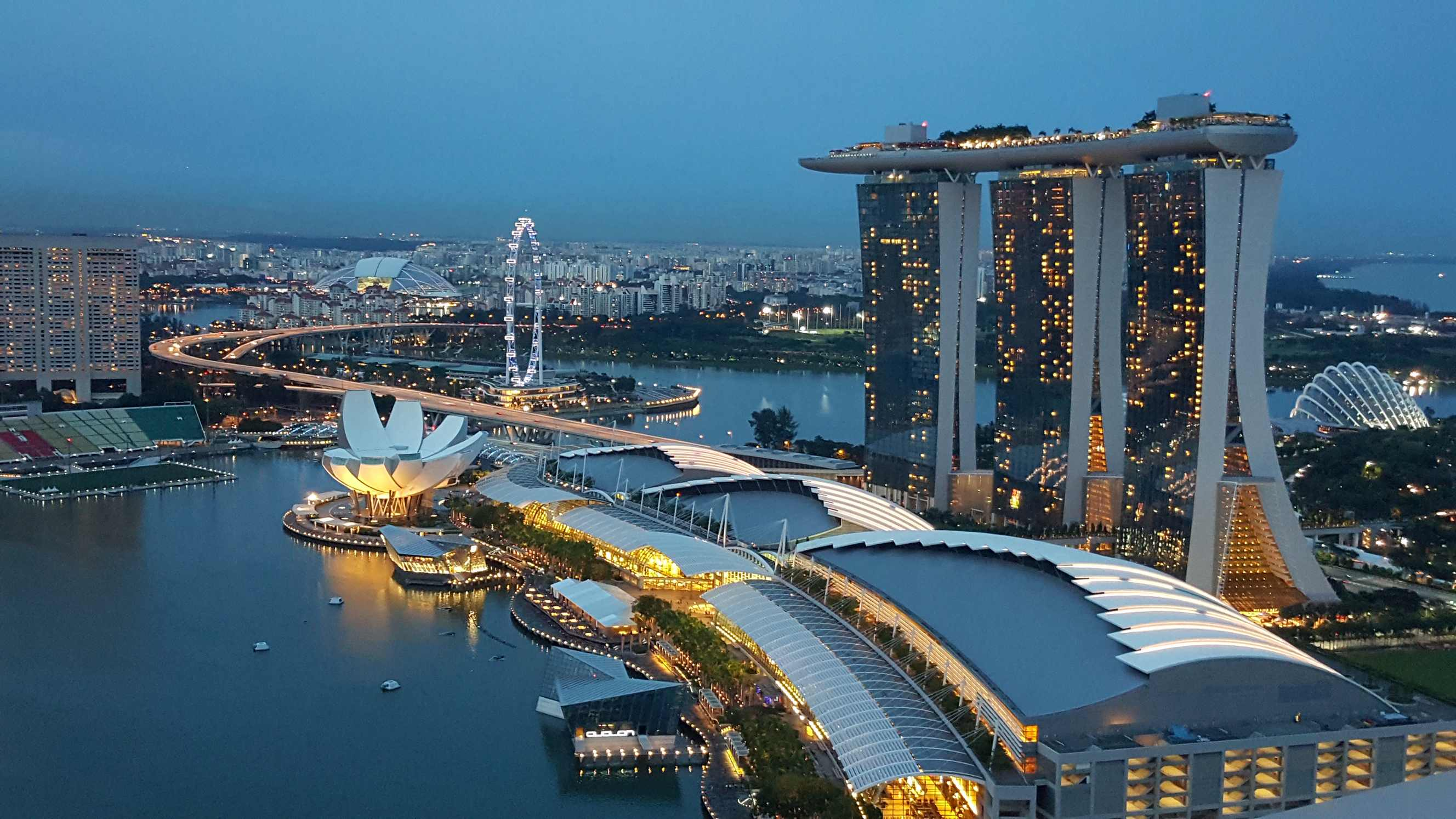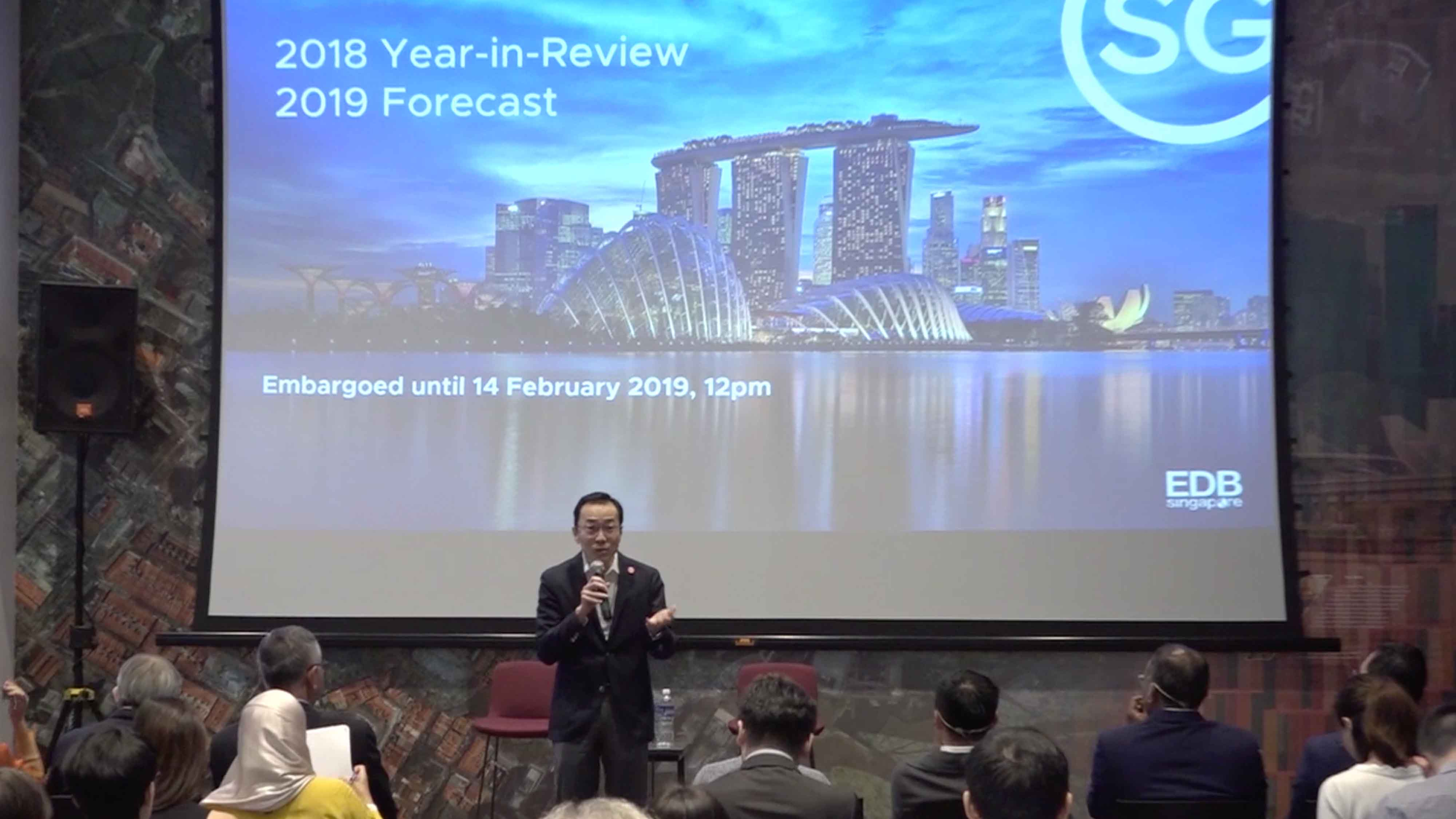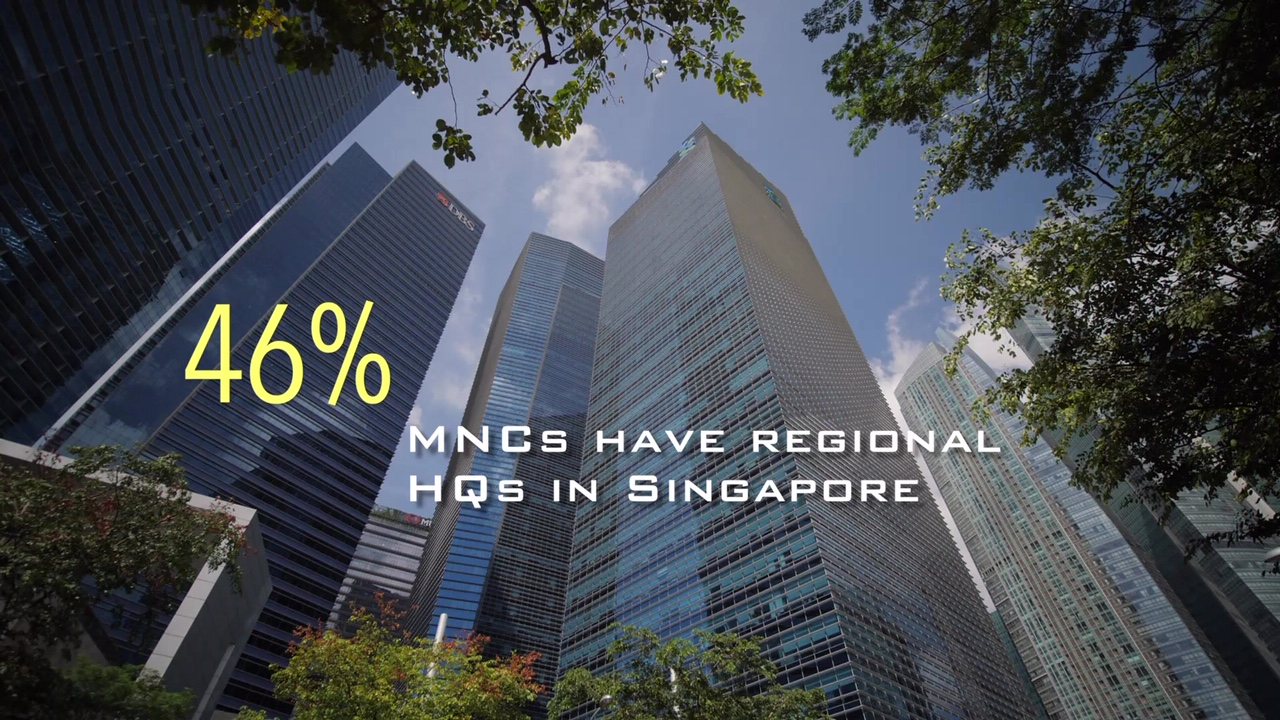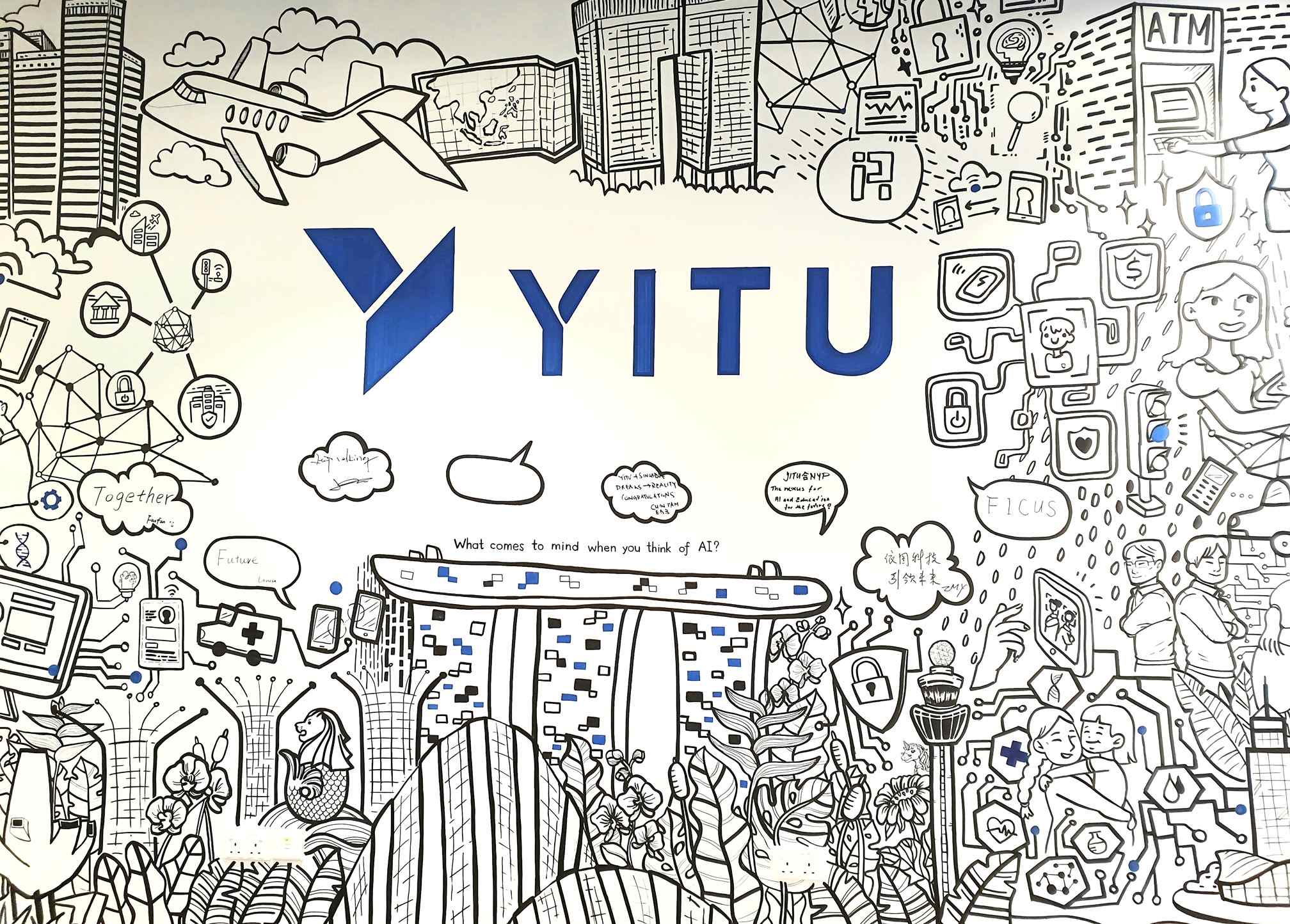
Economy
14:11, 02-Apr-2019
Asia's 'Silicon Valley': Is Singapore the next global business center?
Updated
16:02, 03-Apr-2019
Aliyah Sahni

It seems all roads lead to Singapore for global businesses looking to gain a foothold in Asia. With its burgeoning yet untapped market, Southeast Asia is fast becoming the engine for global growth. And Singapore is in the heart of that growth.
00:44

EDB (Economic Development Board) chairperson Dr. Beh Swan Gin explains that over the last several years, non-Asian companies have been building their footprint in Asia and even “thinking of completely new businesses, new products” to address the needs of the consumers in Southeast Asia.
And most of them have chosen Singapore as their preferred location “when it came to setting up regional headquarters or to have centers of excellence.”
Singapore's Economic Development Board is responsible for developing strategies that enhance the country's position as a global center.
Their data shows that 46 percent of regional headquarters in Asia are based in Singapore. In terms of technology multinational corporations, Singapore accounts for 59 percent of regional headquarters.

CGTN Photo
CGTN Photo
Social media giant Facebook, which already has its regional headquarters in the city-state, is now building its first ever Asian data center in Singapore.
“Singapore is key to our continued growth in the region, and we are committed to contributing positively to the country's economy and society through local investments. The 170,000 square meter data center represents an investment of more than 1.4 billion Singapore dollars (1.03 billion U.S. dollars), and forms part of our growing presence in Singapore and across Asia.”
While businesses have long been coming to Singapore, the decision by British home appliance giant, Dyson to shift its corporate headquarters from the UK to Singapore, garnered global attention.
While critics blamed the move on Brexit, several analysts attributed the decision to Singapore's business-friendly policies and market factors.
As EDB's Dr. Beh puts it, “for them (Dyson) this was actually a very strong manufacturing base. So, when they were looking to where they would want to do R&D and product development, then Singapore was clearly a very strong contender for this.”
Dr. Beh adds, that “the reason for wanting to do it in this part of the world was because they foresaw that their market would be really dominated by the Asian markets.”
Professor Nitin Pangarkar from NUS business school says, “Singapore's perspective the Brexit doesn't matter as in why do I care about what happens somewhere else. What is of my interest is somebody coming here and investing, creating jobs, so that way it's a win but how big a win that will become apparent over time.”
Another significant feather in the country's cap is that Chinese companies looking to go global are also selecting Singapore as their regional base.

Yitu is one of the companies who chose Singapore for its R&D center. /CGTN Photo
Yitu is one of the companies who chose Singapore for its R&D center. /CGTN Photo
Take for example, Chinese AI startup, Yitu Technology, which chose Singapore to set up its first ever R&D center outside of China.
Their spokesperson and General manager Joy Xue listed three reasons for picking the republic over others.
“The most important one is the availability of high-quality local talent pool. Equally important is the policies of the local government. We have benefited greatly from the Economic Development Board of Singapore which has been a great helping hand in helping us set foot in Singapore. Last but not least is this local business community which has formed a kind of AI ecosystem.”
So, how did Singapore establish itself as a business hub for both Western and Chinese companies?
Singapore has always had a solid reputation for its ease in doing business. “The ease with which people can be hired, licenses obtained, taxes paid, trading across borders. All these things are extremely easy to do in Singapore and that makes Singapore a very attractive place," said economist Manu Bhaskaran.
It's also signed 24 free-trade agreements with several nations including the U.S, EU, ASEAN, and China, which makes it hassle-free for businesses to trade across borders.
This is especially significant for companies like Yitu.
“We are not just a Chinese company, we sell our products in Europe, Southeast Asia, Middle East, Africa. Singapore will help to really deepen our roots in this southeast Asia market and beyond and also helping us build a very good global brand.”
Some experts already refer to Singapore as the "Silicon Valley of Asia."

SITEMAP
Copyright © 2018 CGTN. Beijing ICP prepared NO.16065310-3
Copyright © 2018 CGTN. Beijing ICP prepared NO.16065310-3